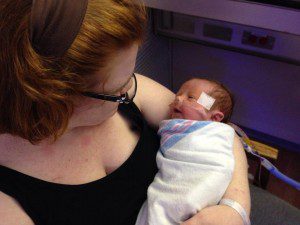
My son, Asher, was born on April 10, 2014. That was the day I became a mom for the second time. I also, quite unwillingly, joined the club no one wants to belong to. I became a NICU mom.
Asher was born 18 days early. A few hours before his birth, he had passed the biophysical profile (BPP) ultrasound, which checked for fetal movement, heart rate, blood flow through the umbilical cord, breathing motions, and placenta placement. He scored an 8 out of 8. He was fine in utero and he wasn’t quite cooked, but he was developing nicely.
The problems that led to his early birth were entirely in my own body.
I had developed pre-eclampsia during my first pregnancy at 36 weeks, but I was able to hold off delivering Lucie until 37 weeks and 1 day. She had low apgar scores, attributed to the medication I had received during a failed induction attempt, and but she only spent about 15 minutes in the Neonatal Intensive Care Unit (NICU) for evaluation.
My blood pressure had been high my entire first pregnancy. But when I was pregnant with Asher, my blood pressure was completely normal until my appointment at 32 weeks and 3 days. I was immediately put on bed rest, and later put on medication to lower my blood pressure. At 36 weeks, the dose on my blood pressure pills was increased as my blood pressure began to creep higher.
At 3 a.m. the morning Asher was born, I woke up feeling awful. I called the obstetrician’s office as soon as they opened, and I asked to be seen earlier than my scheduled 10 a.m. appointment. When I arrived, a BPP was performed, and the nurse took my blood pressure. She made a face that showed she was concerned and asked me to lie down. She refused to tell me what my blood pressure was. I think she did not want my blood pressure to get any higher by knowing how high it was and causing worry.
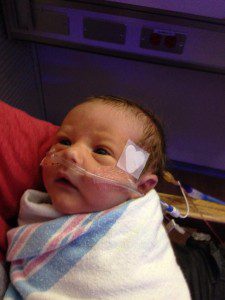
Fifteen minutes later, she came back with the obstetrician and took my blood pressure, and it had gone up to 178/114. This was when my obstetrician asked me when I had last eaten, so he would know when I could be anesthetized.
“It’s baby day!” he proclaimed. This was about 9:45 in the morning.
At this point Asher was 37 weeks and 3 days gestational age, two days older than Lucie had been when she was born. I assumed he would be fine, with none of the problems Lucie had had. My obstetrician did tell me that Asher might have to spend some time in the Special Care Nursery (SCN) after birth. No one told me that the SCN was Lexington Medical Center’s NICU.
We headed over to the hospital Maternal Assessment Center (MAC Unit), where I was admitted and had an IV drip placed with magnesium sulfate to prevent the life-threatening seizures that can develop from pre-eclampsia. My husband and I texted friends and family to let them know where I was. Jon called his supervisor to tell her he wasn’t going to be coming in that day. I stayed calm; I was excited to finally meet my son.
The nurses kept mentioning something about “wimpy white boys.” I didn’t really understand why. I thought it was a little racist, but these were white nurses who kept saying this. Three or four different nurses kept saying this phrase over and over again, and they weren’t even all in my room at the same time. I wondered what they meant by it. I think my husband was a little upset, since he is a white man, and therefore was a white boy at one point. He did not want to be wimpy, and he did not want his son to be either!
After several hours of being monitored and not being able to eat or drink, I was wheeled back to the operating room. A spinal block was placed and Jonathan was brought in. He knew from experience that I would want him to hold my hand. I would also need him to hold a hyperemesis bucket under my mouth and wipe my face after I threw up.
I felt really sick and disoriented at this point, as I had been given IV medication to treat my nausea which made me sleepy. Add to that the spinal block medication and the fact I had not eaten since 7:30 that morning, I am surprised I even knew my name and birth date when the nurses asked to ensure the surgery was being performed on the correct patient.
Asher was born at 1:45 p.m. I heard him scream almost immediately as I saw the sheet lowered and my obstetrician lifted him out of me. I remarked to Jonathan that Asher had a great set of lungs. Lucie did not cry until she was a few minutes old, and this was why she was sent to the NICU. I thought for sure that Asher was okay, and I would soon be holding him and breastfeeding in the recovery room.
What I did not know is that there is a phenomenon which occurs mostly in white males born at 37 weeks and earlier. These boys lack a vital substance called surfactant, or they use it up too quickly after birth, before it has completed its job. Surfactant is what removes all of the amniotic fluid from a newborn’s lungs. The lack of surfactant and the associated health dangers are what made Asher a “wimpy white boy” in the eyes of the nurses. But Asher would prove over the next eleven days that he was anything but wimpy. He was a fighter, and he eventually won the right to come home.
I was brought to recovery after the doctor closed my incision with staples, stitches, and sterile strips, while Jonathan followed Asher to get his eye drops. I asked the nurse for Asher to be brought to me so I could breastfeed and I was told he was in the SCN. Still, no one told me that SCN was a NICU and that Asher was very sick. Jonathan came to recovery and said, “Asher’s breathing fast,” but no one explained to us that meant he would need to be on oxygen therapy and would not be able to eat on his own.
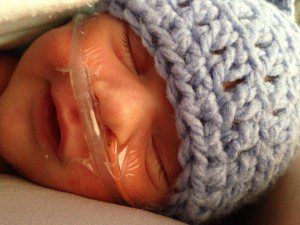
I was brought back to my original room in the MAC Unit because I was still on medication to prevent seizures, but I kept asking to see Asher. I called the SCN and demanded my baby be brought to my room. I heard some medical terminology that I did not understand, and then “those wimpy white boys.”
I found out that a SCN was a NICU when I did a Google search for “wimpy white boy.” This was around 8 p.m.
Shortly after that, a neonatologist, a specialist who cares for sick newborns, came to my room and again used a lot of high-level medical terminology I did not understand. I tried to remember as much as possible from what she said, and Google would become my best friend as I tried to understand what she had told me. I still did not understand how sick my baby was, and I demanded to see him.
As I was tethered to an IV which was administering anti-seizure medication, unable to leave my bed, I was a prisoner of the MAC Unit. As Asher was on oxygen, he was in the SCN and could not be brought to my bedside either.
Around 11 p.m., the on-call obstetrician told my nurse I could be taken off my IV medication for no more than 30 minutes, as long as I stayed in a wheelchair, so that I could go see my baby. Asher had been born 9 hours prior and I had not seen him since he was being wheeled out of the delivery room.
When I arrived to the SCN, I had to scrub in. There were scrub brushes provided with a sponge on one side and blue plastic bristles on the other that were preloaded with soap. Every time I entered the SCN for the next 11 days, I would have to scrub from my elbows to my fingernails. I don’t think my hands have ever been so clean my entire life.
Then, I was wheeled to an open bassinet with a heat lamp over it. There was my baby with what looked like a fish bowl on his head. There was a hose hooked up to it pumping oxygen in.
I asked if I could touch him, and the nurse nodded, so I rubbed his feet, the only part of him I could reach from my wheelchair. It broke my heart, and I was overcome with guilt. If my blood pressure had not gone up; if I had been more lazy on bedrest; if I hadn’t accidentally eaten feta cheese the night before … maybe then I would still be pregnant, and maybe he would have been fully cooked when he was born.
Asher spent 11 days in the NICU. During that time, the other parents of babies in the NICU became familiar faces. We did not know each others’ names, but we knew the names of the kids, as they were printed on little cards on their bassinets with Precious Moments cartoons.
We rejoiced together if we told each other of progress, and we prayed for each other if we alerted them to setbacks. Due to HIPAA laws, the nurses could not tell anyone else anything about our babies, but we would share as we passed each other in the halls.
We were all members of a club, a club no one wanted to belong to, and we were all very happy when we could leave with our babies, but we knew that not everyone has the joy of bringing their baby home.
There were a few days when Asher’s condition was uncertain and the nurses said he might not make it. I am glad he recovered, and this story is a happy one. It could too easily not have been. I’ve tried to get over the guilty feelings, and they are a bit lessened now that Asher has been home for over a month. But I don’t think they will ever completely go away.
Later this week, watch for part 2 of Barbara’s story, as she and her husband tackle life with a child in the NICU.





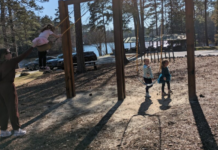



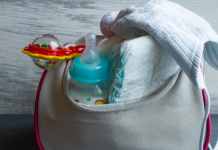
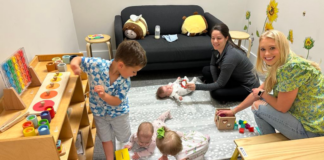




I had no idea you went through so much with Asher! This was a touching story that brought tears to my eyes. God bless you guys. I look forward to reading part 2.
Hi Angela! We tried to keep a lot of the medical stuff off of the main FaceBook newsfeed since I was already so overwhelmed with updating the people who needed to know most (family members and the friend who stepped up and really helped with watching Lucie). I did not want to be bombarded with PMs from people I had not seen or spoken to since high school just trying to be nosey.
I am so glad sweet precious Asher is okay now! 🙂
I too was in the NICU club with my twins, as they were premature. They were called “wimpy” by one nurse, though they are only half-white. 😉 I believe the more pc term is “feeder-grower syndrome” as opposed to “wimpy white male syndrome”, but it’s what the nurses are used to, I suppose. I had heard birth stories of friends in the Mothers of Multiples Club, and the term “wimpy white male” popped up quite a bit. I knew the nurses didn’t mean any harm by it, and didn’t really give it a second thought when they said it. However, if I HADN’T known what it meant ahead of time I would have been completely shocked!!!!!
Here’s a link on the term’s genesis, though I’m sure you know at this point. http://www.families.com/blog/weak-white-males-and-the-difference-race-makes-in-preemies
One of the hardest things I found about NICU time was the fact I had to be split up from my OTHER child, 18 months old at their birth. It’s not as dramatic a problem as worrying about if/when your child(ren) will be discharged, or how they physically are doing… .but it still haunted me nonetheless. Though I imagine this topic may fall more under the scope of your “Part 2” blog. 🙂
Thanks for sharing your story, Barbara! As usual, highly intelligent, emotional, and knowledgeable. I just hate you all had to suffer through it, though, no matter how good the outcome!
Thank you for sharing that link, Mary. I had not seen that piece before.
I, too,had a “wimpy white boy” in the NICU. My son was born at 34 weeks due to severe pre-e and HELLP syndrome. My heart goes out to you. Sending love from one wimpy white boy mama to another. <3
The thing that really gets me is that I had never heard of “wimpy white boy” syndrome until I had been hospitalized a few times near the end of this pregnancy. Now, I hear it all the time! I immediately sensed that the people who make these comments are either former NICU parents themselves, healthcare workers, or close family members to either of the two previously mentioned categories. That is why being a NICU parent is like being a member of a club, and “Wimpy White Boy” is the secret password used to gain access. It’s a common thread only people who have experienced this will ever completely understand.
I couldn’t stop the tears as I read this . I had a similar story…. Twice ! My son was 31 weeks NICU 31 days and my second child 34 weeks and 28 days in NICU. I can relate to all those feelings . No one can ever truly understand unless they have lived the life if a NICU parent . Yes… It was my blood pressure both times . My first pregnancy I did everything right , diet, exercise , it didn’t help. I felt like a failure. Then , second pregnancy…. Unplanned due to the fact that I was scared to death for a repeat. Things happened and I tried to stay positive . But week 28 things went downhill a second time . Again feeling of failure! I felt lost! And robbed of those things that so many mothers take for granted. Holding your baby, nursing your baby, geeze..,,, a normal delivery! The weeks that followed were torture!
Just know you are not alone. My son is now 31 months and doing well ! From 2lbs 4 oz to 29 lbs! My daughter 3 lbs 4oz now almost 8 months and 18 lbs completing caught up. I don’t wish the NICU experience on my worst enemy . Luckily SOME of the nurses have compassion for the parents who are lost and those few make the roller coaster a bit easier ! I wish the best for you and your family.
Wow, your preemies are bigger than my 2 1/2 year old who only spent 15 minutes in the NICU. You must be thrilled that they not only survived, but managed to thrive.
I had twins at 30 weeks. One spent 84 days in the NICU. The other passed away in the NICU after 2 days. So, I hear ya. NICU life sucks.
Alexa, I’m so sorry you had to go through that. It is something that I think a lot of moms think won’t happen to them. Then, when it does, we feel helpless because we are not in control of our babies’ care. It was very frustrating.
My nephew also had wimpy white boy syndrome and spend nearly a week in the NICU. I remember how scary and upsetting it was for our family. I am sorry you went through this but glad that he recovered!